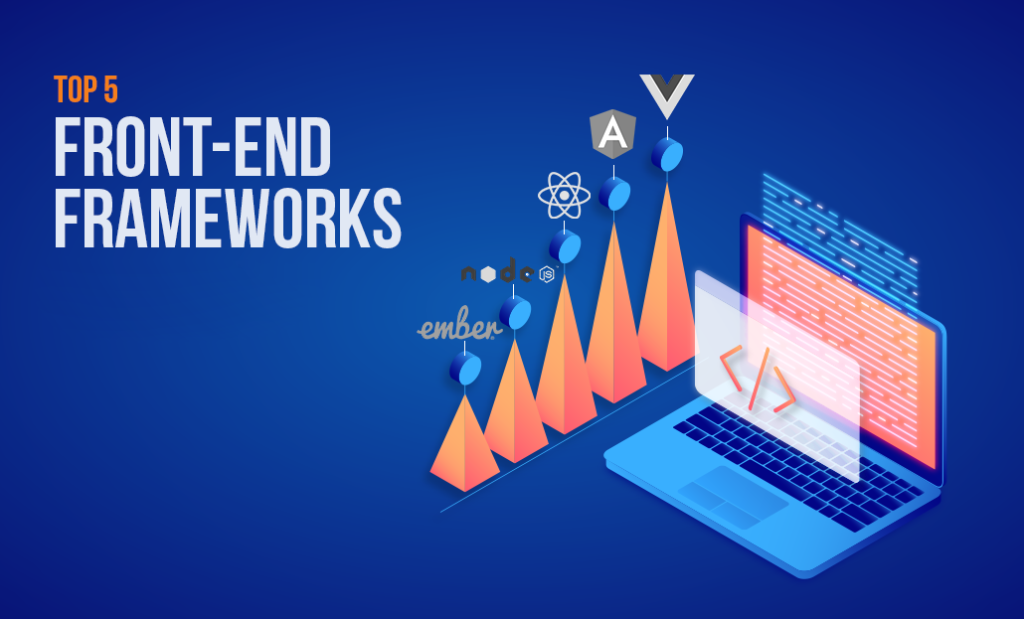In the ever-evolving world of web development, choosing the right frontend framework can make or break your project. With new technologies emerging and established ones evolving, 2024 brings exciting opportunities for developers. Let’s dive into the top frontend frameworks that are shaping the future of web development this year.
Key Criteria for Choosing a Frontend Framework
When selecting a frontend framework, there are a few critical factors to consider:
- Performance and speed: Fast load times and smooth interactivity are essential.
- Community support and popularity: A strong community ensures continuous updates, plugins, and learning resources.
- Learning curve and developer experience: Some frameworks are easier to pick up, while others might require more experience.
- Flexibility and scalability: The framework should be adaptable to your project’s growing needs.
Top Frontend Frameworks in 2024
The competition among frontend frameworks is fierce, and several have emerged as top contenders in 2024. Below are the leading frameworks, each offering unique strengths to fit various project needs.
React.js
React continues to be the king of frontend frameworks in 2024. It was developed by Facebook (now Meta) and has since become one of the most widely used frameworks for building interactive user interfaces.
- History and growth: Since its launch in 2013, React has seen tremendous growth and adoption.
- Key features: React offers a component-based architecture, virtual DOM, and great flexibility, making it ideal for both small and large applications.
- Why React dominates in 2024: The vast ecosystem, strong community support, and ease of integrating with other libraries keep React at the top of the list.
Vue.js
Vue.js has carved out a space for itself as a popular choice, especially for developers looking for simplicity and flexibility.
- Key features: Vue’s simplicity in integration, along with a gentle learning curve, makes it a preferred framework for building progressive web apps (PWAs).
- Use cases: It’s particularly useful for small to medium-sized applications and developers who want an easy yet powerful tool.
- Why Vue.js is gaining popularity: Vue’s adaptability, ease of use, and robust community have kept it relevant and growing.
Angular
Angular, backed by Google, is another robust framework that excels in building enterprise-level applications.
- Advantages: Angular is a full-fledged framework that provides everything needed out-of-the-box, including two-way data binding, dependency injection, and a solid structure.
- Who should choose Angular? It’s best suited for large-scale, complex applications where structure and maintainability are crucial.
Svelte
Svelte offers a fresh take on building user interfaces by shifting much of the work to compile time.
- What makes Svelte unique? Unlike other frameworks, Svelte doesn’t rely on a virtual DOM. Instead, it compiles components to highly efficient vanilla JavaScript at build time.
- Key benefits in 2024: Svelte’s simplicity and performance make it an attractive choice for developers seeking a lightweight framework.
- Svelte’s growing community: As more developers recognize its benefits, Svelte’s community is growing rapidly, and it’s becoming a go-to for modern web apps.
Solid.js
Solid.js is gaining traction in 2024 as a high-performance alternative to traditional frontend frameworks.
- Why developers are adopting Solid.js: Its fine-grained reactivity and minimal overhead make it incredibly fast.
- Key features: Solid.js combines the best of React’s component-based architecture with exceptional speed and reactivity.
Emerging Trends in Frontend Frameworks
Several trends are influencing the development of frontend frameworks in 2024:
- Component-driven development: Components have become the building blocks of modern web development.
- Static site generation (SSG) and server-side rendering (SSR): More developers are opting for SSG and SSR for better performance and SEO.
- TypeScript integration: TypeScript continues to grow in popularity for adding type safety and improving developer productivity.
Performance Comparisons Among Frameworks
When it comes to performance, each framework has its strengths. For example, Svelte and Solid.js are known for their lightning-fast performance, while React and Vue strike a balance between performance and flexibility.
Choosing the Right Framework for Your Project
Selecting the right framework largely depends on your project’s needs:
- Project size and complexity: If you’re building a complex, enterprise-level app, Angular might be your best bet. For smaller, progressive apps, Vue or Svelte could be a better fit.
- Developer expertise: React offers a vast community and resources, making it easier for beginners to get started.
- Scalability and maintenance: Consider the long-term scalability of your project when choosing between frameworks like React, Angular, or Solid.js.
Popular Use Cases for Each Framework
- React: Ideal for large-scale applications with dynamic content and frequent updates.
- Vue: Excellent for building user-friendly, progressive web applications.
- Angular: Best for enterprise solutions requiring a comprehensive toolset.
- Svelte and Solid.js: Perfect for building modern, high-performance web applications with a focus on speed.
The Future of Frontend Frameworks
As web development evolves, frontend frameworks will continue to adapt. We can expect more innovations around performance optimizations, developer productivity, and better integration with backend technologies.
Conclusion
2024 brings a wide range of frontend frameworks to choose from, each offering unique advantages. Whether you’re building small, lightweight applications or large, complex ones, the right tool is out there waiting for you.
FAQs
- What is the easiest frontend framework to learn?
Vue.js is considered one of the easiest frameworks to learn due to its simplicity and clear documentation. - Which framework is best for SEO?
React, Vue, and Svelte all offer strong SEO capabilities, especially when paired with server-side rendering (SSR). - Are frontend frameworks necessary for every project?
Not always. For simple, static websites, a framework might be overkill, but for dynamic web apps, they are invaluable. - Can I switch frameworks midway through a project?
While possible, switching frameworks midway can be complex and might involve significant rework. - What is the future of frontend frameworks?
The future will see a stronger focus on performance, developer experience, and integrations with backend technologies.



More Stories
Washing Machine Maintenance in Riyadh
Best LG Washing Machines Repair in Jeddah
Exploring the Role of Medical AI Chatbots in Enhancing Patient Feedback Systems